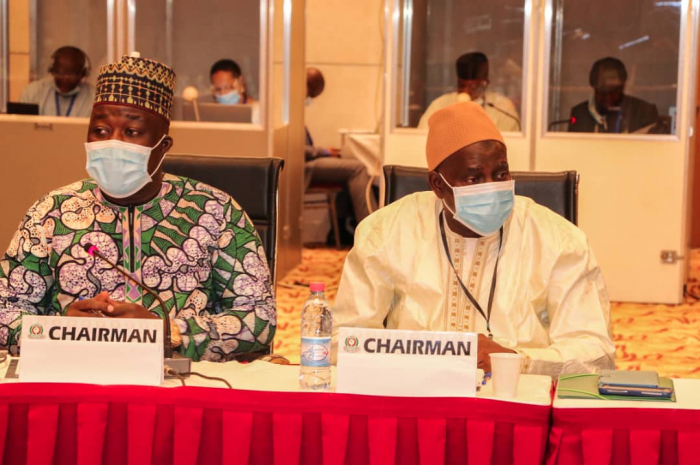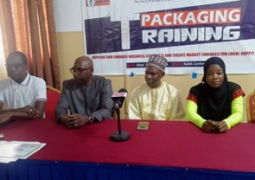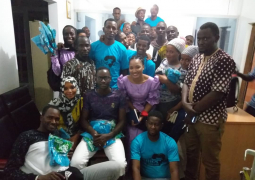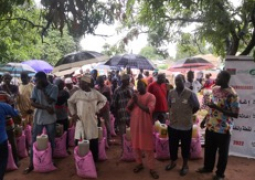
The Cotonou meeting was to acquaint members of the Joint Committee with current developments on the African Continental Free Trade Area (AfCFTA) and make recommendations to Plenary.
The meeting brought together participants including members of Joint Committee; Secretary General, AfCFTA Secretariat; a representative of the Trade Department, ECOWAS Commission; a representative of the Trade Ministry, Benin Republic; a representative of the Trade Department, African Union; a representative of Private Sector, Benin Republic; a representative of Civil Society Organizations, Benin Republic; and a cross section of academia.
The outcomes of the meeting was to ensure participants have improved knowledge on African Continental Free Trade Area; familiar with challenges and prospects for the application of the AfCFTA; understand the role of ECOWAS in the application of the AfCFTA; and be acquainted with the role ECOWAS Parliament should play in mitigating challenges and facilitating the application of the AfCFTA.
During the deliberations, members unanimously commended AfCFTA, which seeks to create a continental market for goods and services, with free movement of people and capital, and pave the way for creating a Customs Union.
Accordingly, they accepted the need to support the implementation of AfCFTA, which is expected to grow intra-African trade through better harmonization and coordination of trade liberalisation across the continent, and advocate for the immediate ratification by all State parties /Member States of the AfCFTA agreement.
The AfCFTA was recognized as an example of South-South cooperation which would keep within the local domain wealth which hitherto went abroad through goods and services. It is projected to establish a formidable and diverse market of over 1.2 billion people.
ECOWAS being a Regional Economic Community (REC) had its own experience of cooperation and integration policies including a customs union.
Members equally recalled and shared experience of challenges faced by ECOWAS in its progress with integration policies and the Union.
They were skeptical of being able to achieve with 55 countries at the continental level what has remained elusive with only 15 countries at the regional level.
They also recalled the challenges of the common currency, free movement (including non-tariff barriers), security, transportation (air, sea and land), infrastructural deficit, trans-humans, banking/settlement, telecommunication/ ICT and Pharmaceuticals. In addition, they lamented the failure of countries to observe their obligations under agreements (e.g. unilateral closure of border). Recognizing free movement of goods as a major plank of integration, they appreciated that integration would be empty if there is no free movement of goods.
Having extensively discussed the African Continental Free Trade Area (AfCFTA), prospects of its achievement within a context of cross-border threats (Terrorism and Insecurity, Pandemics and Protectionism), members recommended to the Plenary for consideration of member States to endeavor to fulfill their obligations under Protocols and Agreement, put in place effective mechanism for the archiving, cataloging and tracking of international instruments they are obliged to implement and ensure their actions are consistent with such obligations, endeavor to ratify and deposit their instrument of ratification before 1st January 2021 the take-off date of the AfCFTA, immediately conclude their National Implementation Strategy on AfCFTA in consultation with the ECOWAS Commission, and develop indicator at the National level to monitor the implementation of AfCFTA in consultation with the ECOWAS Commission.
They also recommended to ECOWAS Commission to establish effective mechanism for the archiving, cataloging and communicating of ECOWAS Community instruments that Member States are obliged to observe and embark on regular advocacy in conjunction with the ECOWAS Parliament to ensure their application, develop indicator at the regional level to monitor the implementation of AfCFTA, in consultation with Member States, immediately conclude their Regional Implementation Strategy on AfCFTA, in consultation with Member States and submit for the consideration of the ECOWAS Parliament, bring together Parliamentary bodies in Africa for sensitization and information sharing on the AfCFTA, and endeavor to involve Parliament at the conception of policies and program to enable them understand and facilitate their passage at the national level.





